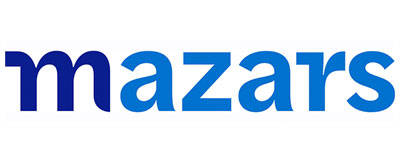What material items should be in the NEDs Service contract?
What material items should be in the NEDs Service contract?
When all the due diligence has been performed by all parties; when the NED has been approved by the regulators, but before the appointment is finalised, the NED will need to agree terms with the company in question and embody those terms in a contract. It is possible, of course, depending on timing, to make the appointment subject to regulatory approval.
As always, these legally binding documents will be tailor-made to suit the company and the NED and they do vary across the insurance industry.
THE NED'S CONTRACT FOR SERVICES
There is a commonality to most contracts of this nature, which should, as a minimum, cover the following mutually agreed issues, although not necessarily in this order:
- Appointment to the Board
- Requirement to serve on specified Board Committees
- Definition of NED role
- Duties and responsibilities
- Term of the appointment, with start date, and duration
- Notice period
- Retirement and termination
- Requirement to perform satisfactorily
- Time commitment (often specified as a number of days)
- Timing of meetings (e.g. quarterly) and dates for both the Board and its Committees.
- Venue of meetings
- Alternative forms of meeting in accordance with the Articles
- Accepting additional commitments
- Fees: amount and when paid
- Expense reimbursement
- Declared outside interests
- Conflicts of interest
- Confidential nature of the company's data
- Disclosure of price sensitive information
- Data protection and GDPR
- Induction arrangements
- Review process: Board and individual Directors
- D&O Liability insurance
- Independent professional advice
- Administrative support
- Board and Board Committee terms of reference
- Third party rights
- English law, or as appropriate
- Signatories
- Acceptance procedure
Duration of Appointment
Notwithstanding delicate, but pragmatic, matters such as age, which cannot be used for discriminatory purposes, lengthy service as a NED can bring into question matters of genuine independence and impartiality. There is a perception that NEDs run the risk of "going native" if they serve on Boards for too long or that their objectivity might be compromised by familiarity bred of long service.
The Higgs Report outlined a series of tests of independence, including length of service, which the report defined as ten years, although not all commentators would agree with that period today.
Time Commitments
Contracts of employment should specify the number of days for which the NED's services are engaged. A minimum number of days may also be indicated.
Such requirements presuppose a degree of time and diary management by the NED; a commitment to attend meetings (thereby organising other affairs accordingly) and an ability to arrange the NED's corporate life efficiently and without compromise if a portfolio of NED appointments exists.
Today, it would not be at all unusual when asking a NED to attend for a day at a Board meeting to double that time to allow for adequate preparation. As a minimum, a commitment of 15 to 20 days a year would be quite normal with additional days added for participation on a number of Board Committees.
Such time commitments should include attendance at all meetings; preparation time and time spent in communicating with the company through a variety of media.
DIRECTORS' FEES
It is not possible to offer absolute guidance about the level of NED fees, as they vary considerably across the insurance industry. The greatest differences exist as between the publicly quoted (PLC) and private companies. Also, the role of non-Executive Chair tends to carry, justifiably, a higher level of remuneration than that of other NEDs.
While a portfolio of three or more non-Executive Directorships may involve total remuneration running into six figures, it will rarely reach the annual salary level, with bonuses, of a very senior manager in the insurance industry. Additionally, of course, for independent NEDs, their remuneration will not involve any incentive compensation, stock awards or benefits such as health insurance and pension contributions.
In the recent past, however, rising levels of payment to NEDs have been a reflection of the increased responsibilities they have taken on in the wake of the financial crisis of 2008. Additional time commitments, increased reputational risk and the expectation of regulators have all contributed to a general increase in fees paid to NEDs for both Board participation and for sitting on specific Board Committees.
By way of indication only, in the case of a regulated start-up or a non-complex business of modest size, involving 20 contracted days per annum, a 2017 fee in the order of £50,000 to £60,000 would not be considered unusual, depending upon the scope of the appointment.
Each case must, of course, be looked at individually and a somewhat lower amount may be justified in specific circumstances. On the other hand, significantly higher fees for NEDs in the larger insurers and Lloyd's managing agents would not be unusual.
At an iNED Forum held in November 2014, Per Ardua, the Executive search firm, indicated the following levels of current NED remuneration in the insurance sector:
FTSE 100
- NED: £80,000 – £140,000
- NED Committee / Chair: £10,000 – £15,000 (Chair: £15,000 – £20,000)
- Chairman: £400,000 – £650,000
FTSE 250
- NED: £50,000 – £100,000
- NED Committee/Chair: £10,000 – £15,000 (Chair: £15,000 – £20,000)
- Chairman: £100,000 – £250,000
Subsidiary / Non FTSE Company
- NED: £40,000 – £75,000
- NED Committee/Chair: £5,000 – £10,000 (Chair: £10,000 – £15,000)
- Chairman: £75,000 – £150,000
The following observations were also made at that iNED Forum:
- Committees should be paid separately. £5,000 – £10,000. Possibly £15,000 if Chairing
- Fees will always depend on expected days’ involvement and this may differ considerably
- It’s very important to obtain a realistic decision on the number of Board and Committee days and whether they are concurrent or not. Also, how much pre-reading is involved and how many off-site attendances will be required
Some adjustment should be made for inflation and the increasingly onerous responsibilities assumed by NEDS since the November 2014 iNED Forum.





